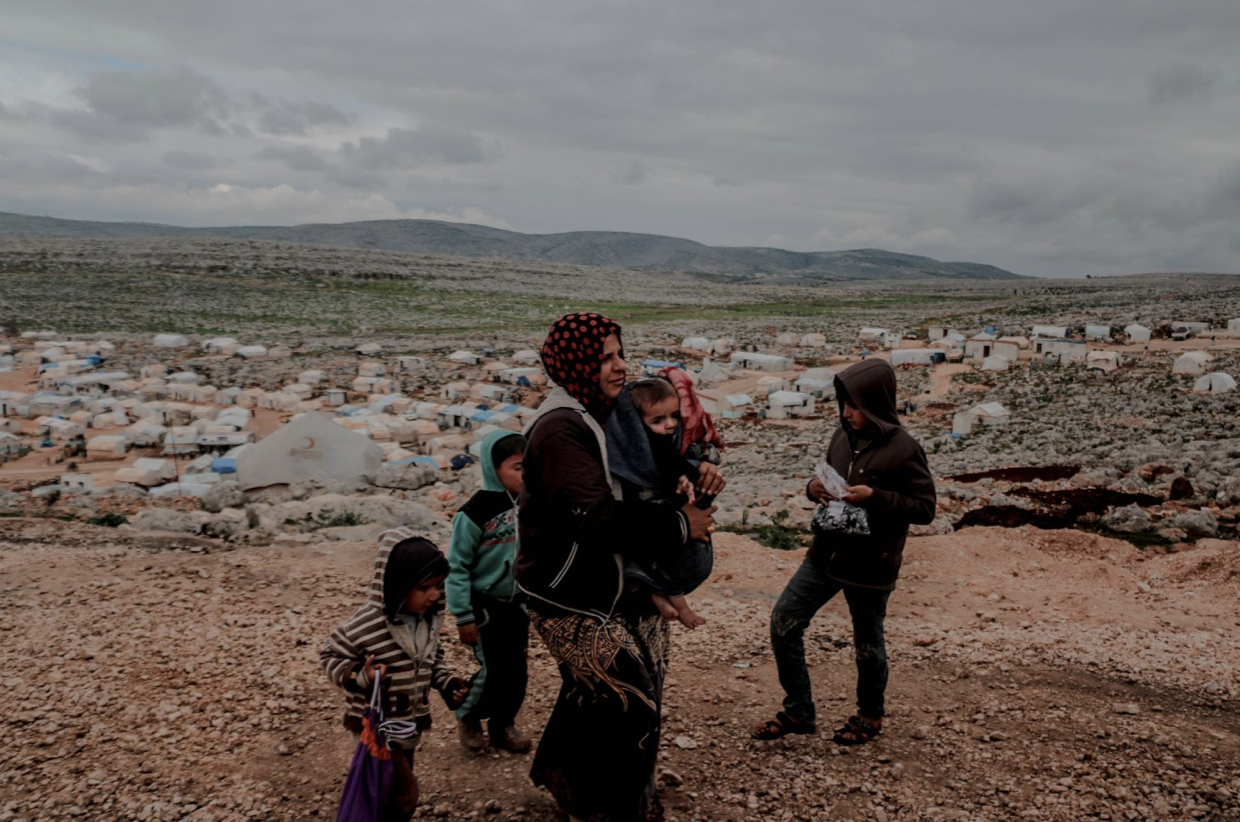TikTok, one of the fastest-growing social media apps, has generated over $11 billion since it was first launched in September 2016 and has over one billion active users worldwide. The app, mainly used for entertainment purposes, is famous for giving users the ability to create short videos. TikTok is also used by many businesses and used as a way to share news.
Earlier this year, many TikTok users saw live streams of displaced families in Syrian camps begging for donations. These videos are created by so-called “TikTok middlemen” who provide families with the phones and resources to create live streams. In one of the videos, Mona Ali Al-Karim and her six daughters can be seen sitting on the floor of their tent for hours at a time repeating the phrase “Please like, please share, please gift.” Similar to many other families that make such live videos, they are begging for virtual gifts left by viewers that can be converted into cash.
These begging videos have had mixed responses from TikTok viewers. Many viewers have donated to help support those families; however, many also expressed concerns about scams.
BBC contacted TikTok about these live streams and received the response that this type of content was indeed not allowed on its platform due to concerns about child exploitation. Marwa Fatafta, a digital rights leader from Access Now, says that these lifestreams contradict TikTok’s policies to “prevent the harm, endangerment or exploitation” of minors on the platform. In addition, Fatafta says, “TikTok clearly states that users are not allowed to explicitly solicit gifts, so this is a clear violation of their own terms of services, as well as the rights of these people” (Gelbart).
On top of this controversy about child exploitation and profiting off of it, BBC saw TikTok streams earning up to $1,000 per hour, but found that the families who were creating these videos were only receiving a fraction of that. When asked to comment on this, TikTok claimed that its commission from digital gifts was significantly less than 70%, but the company declined to state the exact amount. However, after the news service ran an experiment to track where the donated money went, they found that TikTok had taken 69% of the money. This amount earned was further reduced upon withdrawal from the local money transfer shops, leaving the families who were creating these videos with 35%.
To help solve this issue, BBC reached out to several Syrian charities that worked to support the families who were creating the live streams yet not making enough money or even receiving a fair amount of the profits. A local charity has graciously agreed to help provide basic supplies for the families and help pay the educational expenses to allow the children to go to school for the next three months.
Despite this, many families living in Syria still struggle to make money in other ways than online begging. This continues to be a pressing issue as these live streams are often violating children’s rights by exploiting minors – forcing them to be on live streams for hours at a time instead of going to school or playing as kids should. Even more concerning is the fact that TikTok is significantly profiting off of these types of videos. Thus, such content should be removed from TikTok, and families seeking financial aid should reach out to charities and similar organizations.
Bibliography:
Gelbart, Hannah, et al. “TikTok profits from livestreams of families begging.” BBC, 12 October 2022, https://www.bbc.com/news/world-63213567. Accessed 23 October 2022.
Satija, Bhanvi, and Krishna Chandra Eluri. “TikTok’s ad revenue to surpass Twitter and Snapchat combined in 2022 – report.” Reuters, 11 April 2022, https://www.reuters.com/technology/tiktoks-ad-revenue-surpass-twitter-snapchat-combined-2022-report-2022-04-11/. Accessed 27 October 2022.
“TikTok profiting from displaced Syrians begging for donations, says report.” Middle East Eye, 12 October 2022, https://www.middleeasteye.net/news/syria-tiktok-profiting-displaced-camps-begging-donations. Accessed 23 October 2022.

